- Screening & Tests
- Diet & Exercise
- Rest & Relaxation
- Reproductive Health
- Head to Toe
- View Full Guide
A Visual Guide to PCOS

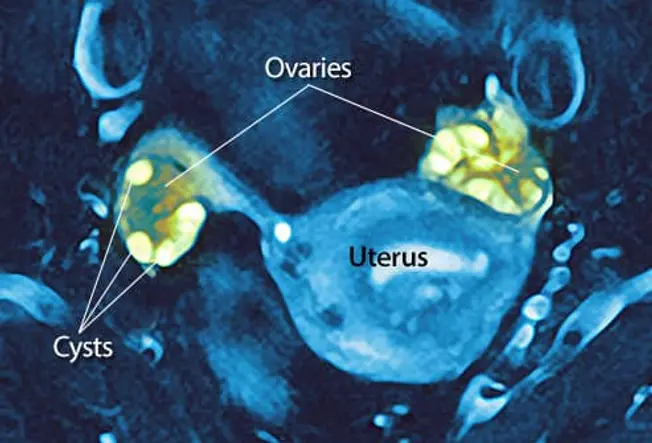
What Is It?
Polycystic ovary syndrome is a hormonal disorder that affects millions of women. Sometimes it's called Stein-Leventhal syndrome.
All bodies need both "male" and "female" hormones to work right, but a woman with PCOS has too much of the male kind. This creates problems with your ovaries: You might have irregular periods or no periods, and you could get cysts in a "string of pearls" pattern. PCOS is also a common cause of infertility.
The condition can't be cured, but it can be treated.
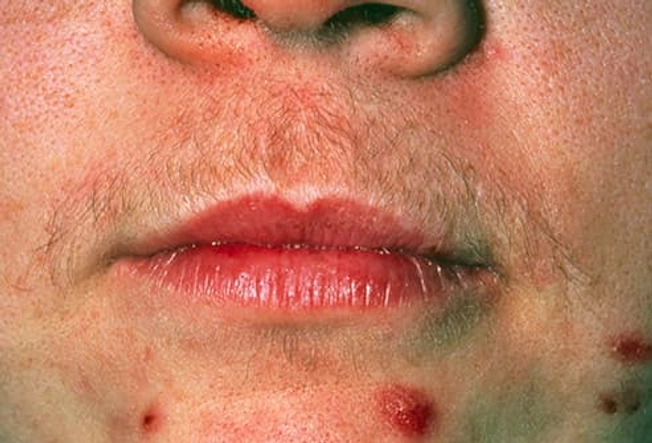
Other Symptoms
You'll tend to gain weight, especially around the waist, and have a hard time losing it. You'll often grow extra hair or have thinning hair. You may get acne or dark patches of skin. Pelvic pain and depression are also possible symptoms.

Causes
Doctors don't know exactly why you get it, but some researchers think high levels of insulin are at the root of the illness. If you're overweight, your chances of developing it are greater.
Your genes play a role, too. If your mother or sister has PCOS, you're more likely to have it. Most women are diagnosed in their 20s or 30s. But even girls as young as 11, who haven't gotten their period yet, can have it.
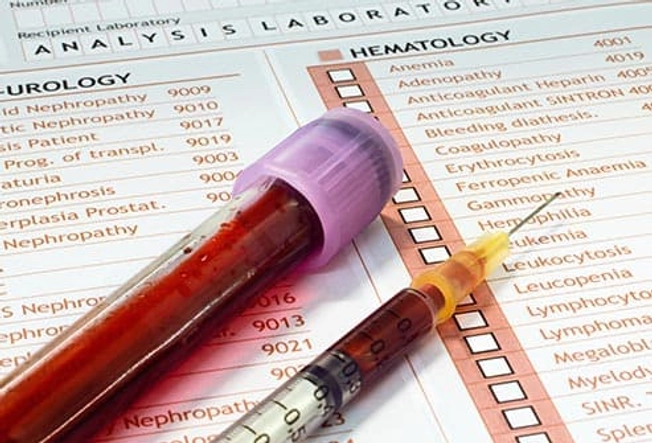
Diagnosis
PCOS symptoms affect as many as 5 million women. To be diagnosed, you'll have at least two of these: infrequent and irregular periods, a high level of specific hormones, and more than 12 cysts. Find a doctor who specializes in it. They'll ask you about your family, check your body and your ovaries, and take a blood sample. They'll probably rule out other issues, such as a thyroid problem, first.
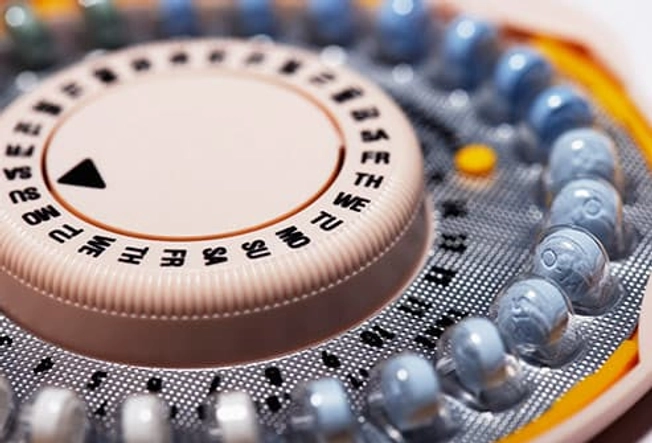
Treatment
You can take medicine to help relieve symptoms. Your doctor may give you birth control pills to regulate your period or another hormone occasionally to start your period. Metformin, a diabetes medicine, may lower your "male" hormone levels. So does the drug spironolactone (Aldactone). You can also try medicated creams and laser treatments to get rid of extra hair.

Natural Treatments
Weight loss is one of the best things you can do: It makes your periods more normal, and it can also lessen hair growth and depression. Eating well is a big part of that. Also pay attention to how foods affect your blood sugar and insulin, like you would for diabetes. Exercise, the kind that gets your heart pumping, as well as lifting weights to keep your muscles strong, will help control your weight, your stress, and your feelings. If you smoke, quit.
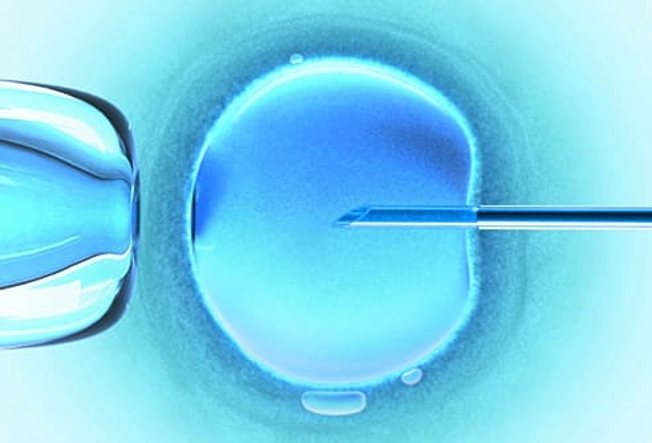
Infertility Treatment
In a very small study of women with this condition, most of them who dropped more than 5% of their weight either got pregnant or had more regular periods. The most common drug used for infertility caused by PCOS, clomiphene, triggers the release of mature eggs. Your doctor may suggest other drugs, too, or in vitro fertilization.
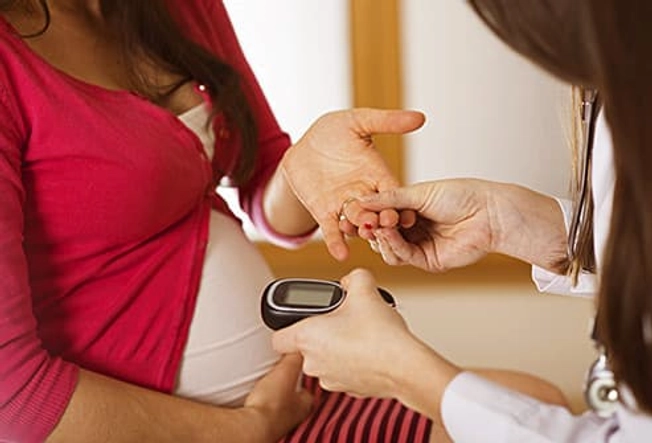
Pregnancy
Your doctor will want to watch you for signs of gestational diabetes, high blood pressure, and early labor and delivery. New research suggests that the diabetes drug metformin will help prevent pregnancy-related issues.
Babies who are born to moms with PCOS may spend more time in intensive care.
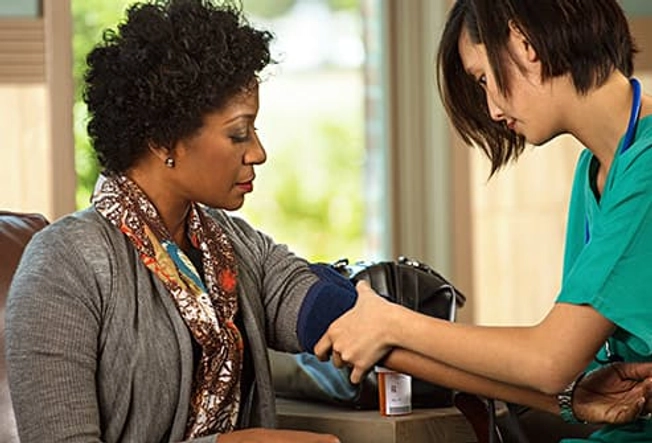
Related Health Risks
When you have PCOS, you need to see your doctor regularly for checkups. You're more likely to have trouble from:
- High cholesterol, which may lead to heart disease, including high blood pressure and heart attack
- Insulin resistance, metabolic syndrome, and type 2 diabetes
- Obesity
- Sleep apnea
- Mood disorders, like depression and bipolar disorder
- Endometrial cancer, especially when you're older
IMAGES PROVIDED BY:
1) © 2015 Photo Researchers, Inc. All Rights Reserved.
2) © 2015 Photo Researchers, Inc. All Rights Reserved.
3) Jose Luis Pelaez, Inc/Getty
4) Angello Deco/Thinkstock
5) Fuse/Thinkstock
6) © 2015 Photo Researchers, Inc. All Rights Reserved.
7) Sneksy/Thinkstock
8) Kiyoshi Takahase Segundo/Thinkstock
9) Pojoslaw/Thinkstock
10) Digital Skillet/Getty
SOURCES:
PCOS Foundation: "What Is PCOS?" "Types of Medical Treatment," "How Do I Know If I Have PCOS?" "Types of Doctors that Treat PCOS."
Eunice Kennedy Shriver National Institute of Child Health and Human Development: "What is PCOS?" "How do health care providers diagnose PCOS?" "Treatments to Relieve Symptoms of PCOS," "Treatments for Infertility Resulting from PCOS."
Office on Women's Health: "Polycystic ovary syndrome (PCOS) fact sheet."
University of Chicago Medicine: "Polycystic Ovary Syndrome: Treatment Options," "PCOS Health Risks."
UpToDate: "Patient information: Polycystic ovary syndrome (PCOS) (Beyond the Basics)."